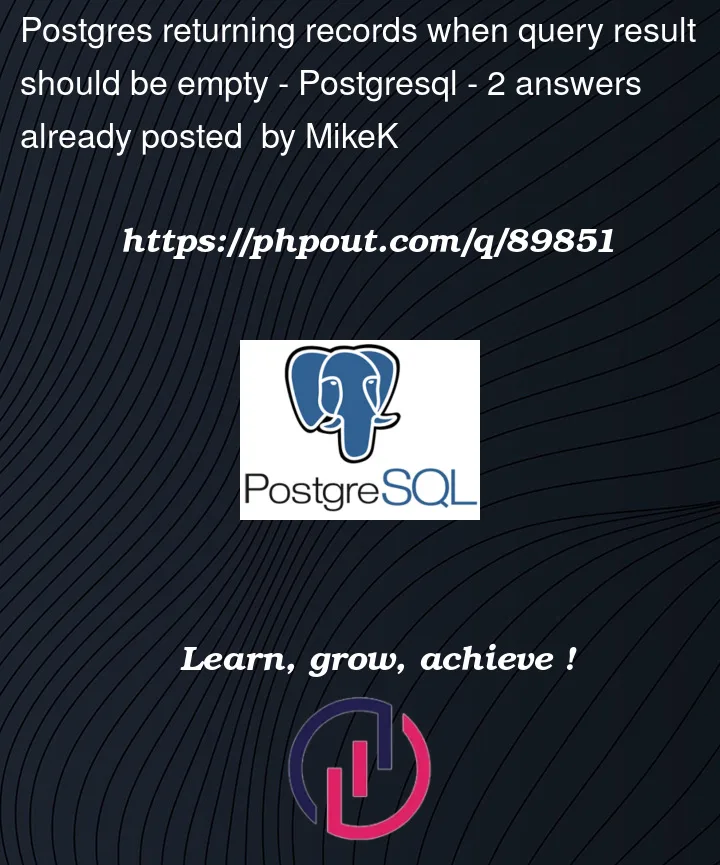Suppose the following,
CREATE SCHEMA IF NOT EXISTS my_schema;
CREATE TABLE IF NOT EXISTS my_schema.user (
id serial PRIMARY KEY,
chat_ids BIGINT[] NOT NULL
);
CREATE TABLE IF NOT EXISTS my_schema.chat (
id serial PRIMARY KEY,
chat_id_value BIGINT UNIQUE NOT NULL
);
INSERT INTO my_schema.chat VALUES
(1, 12321);
INSERT INTO my_schema.user VALUES
(1, '{12321}');
When I query for a user record with a nonexisting chat, I still receive a result:
SELECT u.id,
(
SELECT TO_JSON(COALESCE(ARRAY_AGG(c.*) FILTER (WHERE c IS NOT NULL), '{}'))
FROM my_schema.chat as c
WHERE c.chat_id_value = ANY (ARRAY[ 1234 ]::int[])
) AS chat_ids
FROM my_schema.user as u
Clearly, there is no my_schema.chat record with with chat_id_value = 1234.
I’ve tried adding,
. . .
FROM my_schema.user as u
WHERE chat_ids != '{}'
But this still yields the same result:
[
{
"id": 1,
"chat_ids": []
}
]
I’ve tried WHERE ARRAY_LENGTH(chat_ids, 1) != 0, WHERE CARDINALITY(chat_ids) != 0, none return the expected result.
Oddly enough, WHERE ARRAY_LENGTH(chat_ids, 1) != 1 works, implying the length of chat_ids is 1 when it’s actually 0? Very confusing.
What am I doing wrong here? The expected result should be [].




2
Answers
If the subselect on
my_schema.chatreturns no result, you will get NULL, whichcoalescewill turn into{}. Moreover, the inner query is not correlated to the outer query, so you will get the same result for each row inmy_schema."user". You should use an inner join:I don’t think that your data model is good. You should avoid arrays and use a junction table instead. It will make for better performance and simpler queries.
You can do it as follows :
This will force not to show any result if the query don’t match !
Demo here